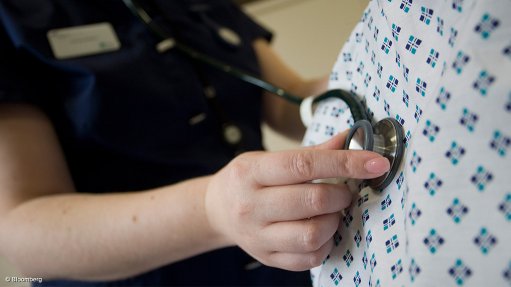
The Democratic Nursing Organisation of South Africa (DENOSA) views the results of the Health Quality Assessment (HQA) that were presented yesterday as nothing but a tip of the iceberg in so far as burden of chronic diseases that have engulfed South Africans, as the assessment was only performed based on only 14 medical aid schemes.
If anything, the results indicate a greater need of a preventative healthcare system in the country, underpinned by a strong primary healthcare that focuses on health education.
The results of the quality assessment indicated a very sick nation as it showed that beneficiaries of the 14 medical aid schemes only consulted a physician four times a year on average, and a specialist only once a year.
When the results of this HQA show an ugly side of well-being for those who can afford paying for medical aid and going for check-ups, the picture is always going to be bleak for those who are not covered by medical aids.
As far as the burden of non-communicable diseases such as diabetes, hypertension and stroke, DENOSA’s concern is well-documented about the poor state of health of South Africans, the majority of whom are dependent on the very scarce resources at public health facilities.
The outpatient departments at our clinics, day hospitals and 24-hour hospitals are packed with patients who are on medication for chronic diseases, most of which could be easily preventable had people been thought the art of healthy living from an early age.
As a result, this crisis of chronic diseases among South Africans leads to other problems such as the ever-increasing severe shortage of nurses and specialists in public facilities as they look after 80% of the country’s population. This also increases the nurse-to-patient ratio, which research has proven that in an environment where a nurse-to-patient ratio is higher, the time it takes for patients to be fully recuperated and get discharged from health facilities is much longer than in an environment where there is low nurse-to-patient ratio.
For a population of 51 million to be served by around 260 000 nurses as per the database of South African Nursing Council (SANC) (this database also includes nurses who have died, retired, resigned, are unemployed, and those who have gone overseas and those that are not necessarily working as nurses but work in other departments) this means that there are more than 200 people per one nurse in South Africa. In developed countries, the figure is 100 people per one nurse and the health of people in those countries is far better than ours.
DENOSA is happy that the Health Minister, Dr Aaron Motsoaledi, mentioned in his budget speech on Wednesday that government will establish a National Health Commission, which will be chaired by the Deputy President, to deal with the challenge of non-communicable diseases.
DENOSA would like to urge all South Africans to embrace a healthy living as a way to ensure their longevity. The danger of not following a healthy lifestyle is that, because there are not enough health workers, chances of people succumbing to these chronic diseases are much higher.